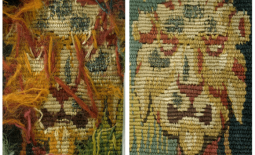Wrong vs. Different
I read a post from a business friend the other day in which he outlined the “right” way to apply for a job, the “right” way to outline and explain past positions on a resume, the “right” way to speak to the interviewer, etc. All I came away with from his advice and perspective was that this place of employment wasn’t not a place I’d want to spend half of my day!
While those things might have been the “right” way to do things for this employer, it would have been oh-so-wrong for a creative brain or expressive personality. The ways that strayed from the regimented and restricted expectations of this employer weren’t “Wrong” — they were just wrong for this employer. Or at least they believe it to be true.
This got me thinking about all the other labels we have for things that are “Right” or “Wrong”.
Aside from the big things like murder, war, orders at the fast food drive-thru, etc. “Wrong” is usually the unmet result of an undefined expectation. It’s the unexpected. The wild card.
It’s not what you thought we were going to get, so it’s not “Right”, therefor it must be “Wrong”.
As a guy who is constantly suggesting new ideas, new ways to look at things, and challenging the status quo (it’s my JOB to bring the unexpected to the conversation), I’ve accepted being labeled “Wrong” for most of my life.
An idea might very well be Wrong for you.
An idea might very well be Wrong for your business.
But avoid the reflexive tendency to label a new idea or new approach as “Wrong” until you have a chance to consider the results this unexpected approach might bring. Instead of coloring the concept with the two extreme crayons of “Right” and “Wrong” (by the way, I’d love to see Crayola add these to their big box of 64) — why not pause for a moment and merely think of the idea as “Different”?
Consider how many companies and people (in professional and personal life) have made great gains and earned fame and fortune from activating strategies that the majority of people would have deemed as “Wrong”. Heck, Apple build an entire campaign around the phrase “Think Different” and it skyrocketed their company to the top.
I could go down a whole political and social rabbit-hole about how literal “Black and White” thinking gets our nation into so much trouble (one group of people needs to be “Right”, which means another group of people needs to be “Wrong”), but I think my readers are bright enough to make connect their own dots.
Let me just end with the statement that the idea of simply looking at something (an idea, a race, an orientation, or a resume) and automatically labeling it as good or bad without considering all the possibilities, well, that would be just plain…




